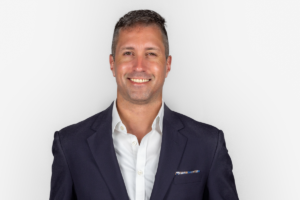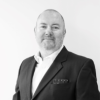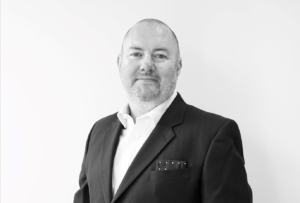Benjamin Sparks received his education at St. John’s College in Santa Fe, New Mexico. There, he studied the great works of western civilization across all manner of disciplines, including literature, philosophy, math, and science.
These texts cultivated and enriched Benjamin’s mind, fine-tuning his mental tools and better equipping him to grapple with difficult subjects. They also increased his ability to think critically and analytically about any subject he encountered, which would serve him well as he embarked on his consulting career later in life.
On the strength of his comprehensive education, Benjamin Sparks earned numerous consulting jobs in the realms of public affairs and business leadership, establishing a solid reputation for himself as a dependable and capable professional. Eventually, he settled on his present dual role as a commercial construction consultant and a dispute resolution professional.
In his spare time, Benjamin Sparks plays multiple stringed instruments and formerly played in throughout multiple music venues in his native Austin, Texas. He loves reading, playing pool, and tasting/studying fine whiskey and wines. Benjamin also leads an active lifestyle, routinely playing golf and soccer, and practicing martial arts.
What do you currently do at your job at the company?
We help clients on very large-scale commercial construction projects. We go over their plans and drawings, and help them create and execute a comprehensive plan of action and viable schedule that encompasses everything from the approval and permitting process, through the construction phase, all the way through project completion. Once we have a viable baseline schedule constructed for the project, we guide our clients throughout the project to help them stay on track, mitigating potential delays, labor issues, material shortages, weather delays, etc.
What’s the inspiration behind going into this industry?
I’ve always had a gift for critical thinking and project management, and I’ve always been fascinated with construction. For the entirety of human history, construction has been the bedrock of civilization. I enjoy working on many different kinds of projects, ranging from schools to water treatment plants to roads to large-scale military projects. They’re all unique, and I’ve done them across the USA, which has allowed me to work with a wide variety of clients and coworkers. It’s a passion of mine to help teams manage everything effectively in order to complete projects.
What defines your way of doing business?
It’s all about bringing teams together and collaborating effectively. I match personalities to specific teams and projects with the goal of bringing out the best in everyone that I deal with. I consider myself rational and logical in how I conduct business, and I’ve grown to expect the same from those who I deal with and employ. I look at the data and use it to create plans that make sense in real time and space, not simply on paper.
What are the keys to being productive that you can share?
The major key to productivity is having a strong personal foundation and routine. I don’t believe in hitting the snooze button on my alarm clock. I wake up at the same time every day, commit to my physical workout routine, and set aside time for daily reading, and get to the office early. I believe that anyone who does the same will find success in their endeavors, whatever they may be. It’s especially important to set aside time to read a variety of books. This helps you to have an idea of the type of person you want to be. Meditation is also key to this.
Can you share a long term career goal or business goal for your company?
In the short term, my goal is to grow professionally. Not only to be good at my current job, but to be the best at future jobs. Another goal of mine is to expand my company and grow our national accounts. Eventually, my long term goal would be to own my own construction consulting company.
How do you measure success?
To me, success is not only accomplishing my own objectives, but the objectives of my clients and staff. Further, success means having brought out the best in my working partners and having made them better people in the process.
What do you consider to be the most valuable lesson you’ve learned through the course of your career?
There are several, I think. Ultimately, one of the most important things I’ve learned is that aggressive confrontation rarely produces positive results. Second would be the importance of delegation. Realistically, a good manager cannot directly manage more than four people before he needs to go delegate. Delegating is key to being an effective manager, producing positive results, and empowering employees to get better at their jobs and find more fulfillment in their careers. More importantly, if someone you’re managing is not performing their job adequately, it is the manager’s responsibility—although it is the misguided instinct of many managers to blame others when this happens. A manager is ultimately responsible for their employees, as well as their development. That means being responsible for ensuring that they have the skills and materials needed to perform their jobs effectively.
What advice would you give to others aspiring to succeed in the same field?
On a practical level, go through as many job sites as possible. Ask as many questions as possible, and do not be afraid to say that you don’t know something. In construction, there are always new technologies and methods being put into use, and each project is going to be unique. It’s quite common for people to hide their ignorance for the sake of appearing competent or strong, but everyone is best served if you just ask questions. Treat it as a learning process, as opposed to pretending to be the smartest one in the room all the time, because that’s impossible. Be humble and learn all you can in your career.
How would your colleagues describe you?
Benevolent and hardworking, I think. I’m always the first one in the office. I love my job. I think my colleagues would call me encouraging, too, and they’d probably say that I’m always reading.
What is a piece of technology that helps you the most in your daily routine?
Aside from my airpods, which allow me to manage my endless stream of conference calls and Teams meetings while still working, I use Oracle and Primavera a lot. Also, Power Project. I utilize them for all my work.
How do you maintain a work and life balance?
Two ways, primarily. One is effectively managing my calendar, scheduling everything personal and professional on it and sticking to that schedule. I make sure to prioritize the things that fulfill me, such as my family and my job. The second way is always starting my day with a routine that gives me plenty of time. I truly dislike rushing. So, I always wake up early, work out, give myself personal time to read, and I never feel rushed. I start each day from an active perspective, not reactive.
Who has been a role model to you and why?
My parents both came from humble beginnings. Both had history degrees and neither came from wealth. My mom put herself through law school while having two kids and very little money. She earned scholarships, was first in her class, and was an editor in the law review. She became a successful attorney, while at the same time being a loving mother, attending every soccer practice, fixing our lunches, and picking us up from school. My dad was very disciplined. He gave me a reading list—and not just to read, but for us to discuss it once I got through it. And he instilled in me the following wisdom: No matter how hard you work or how successful you are, it’s always possible to falter.
What is one piece of advice you have never forgotten?
Put yourself in situations that evoke your higher character as opposed to your lower character.
Read more:
Getting to Know you: Benjamin Sparks, Commercial Construction Consultant



























